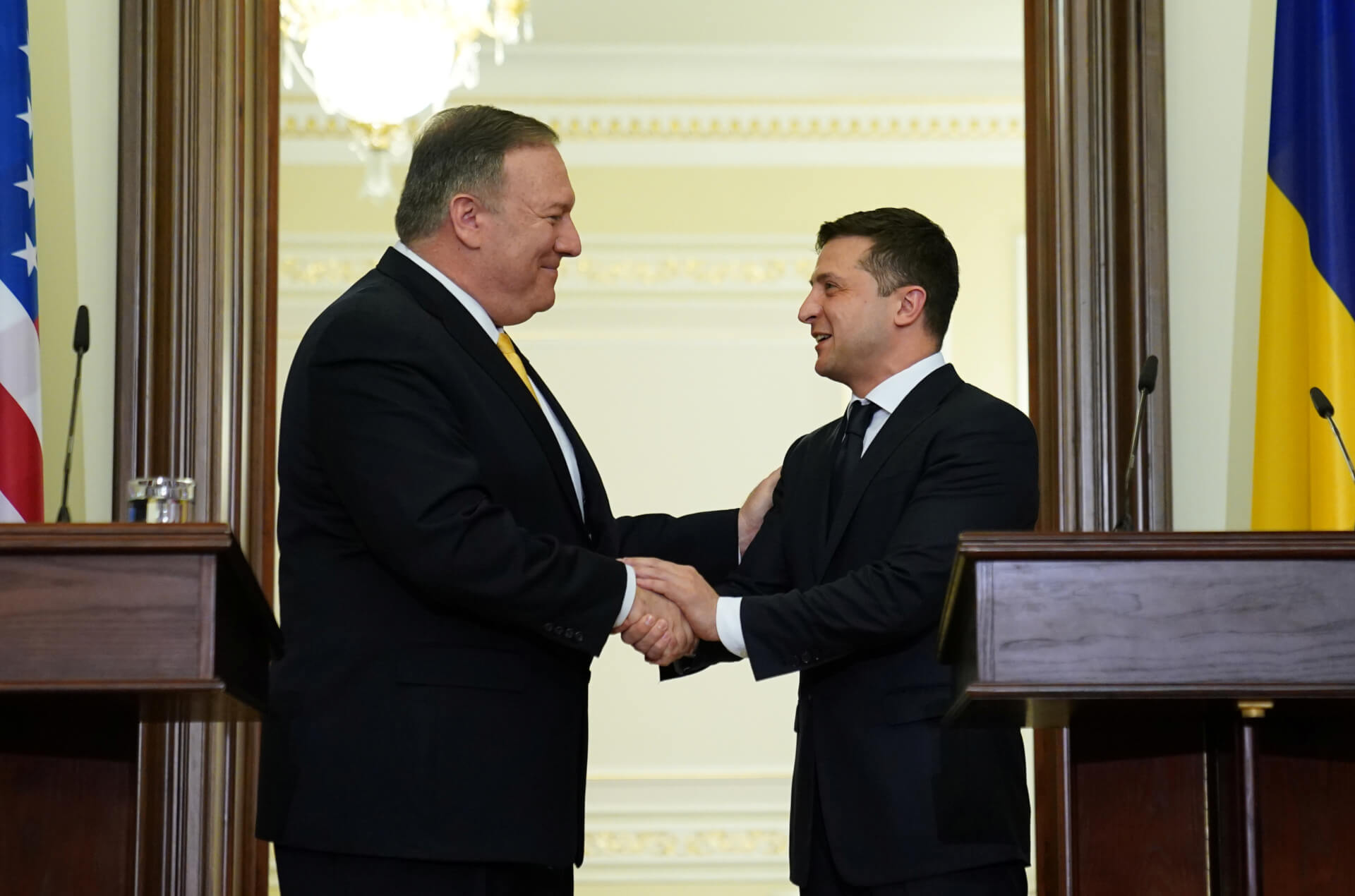Last week, US Secretary of State Mike Pompeo set off on a trip to Ukraine and Central Asia. Pompeo is the senior-most US official to visit the Central Asian Republics (CAR) since his predecessor John Kerry in 2015. His visit comes against the backdrop of President Donald Trump’s impeachment scandal and also comes ahead of the Trump administration’s introduction of its new Central Asia policy, which places “independence and prosperity at the core” of its strategy.
On 31 January, Pompeo met with Ukrainian President Volodymyr Zelensky, Foreign Minister Vadim Prystaiko, and Defence Minister Andriy Zagorodnyuk. While the Secretary of State made no major, new announcements, his presence and public remarks struck the right chords for Ukrainians to alleviate tensions between the two countries. He also laid a wreath of honour for Ukrainian soldiers who died fighting Russian forces in Donbas, and later visited wounded soldiers in the area.
“In July of 2018, we released the Crimea Declaration, which clearly stated that Crimea is part of Ukraine and the United States will never recognize Russia’s attempts to annex it. We will never accept anything less than the full restoration of Ukraine’s control over its sovereign territory,” he said in Kyiv.
On Sunday and Monday, Pompeo engaged in dialogue regarding oil, trade, China, and good governance with the foreign ministers of the five Central Asian republics (CAR).
At a joint press conference with Kazakh Minister of Foreign Affairs, Mukhtar Tleuberdi, in Nur-Sultan on 2 February, Pompeo brought up a strong anti-Beijing agenda. He urged American partners to end China’s “repressions”, cautioning them over becoming overly dependent on Beijing.
“We fully support Kazakhstan’s freedom to choose to do business with whichever country it wants, but I am confident that countries get the best outcomes when they partner with American companies,” said Pompeo.
Pompeo also openly discussed the Chinese persecution of Uighur and Kazakh minorities and visited ethnic Kazakh families from China that are raising awareness about Xinjiang’s so-called ‘re-education’ camps.
The second and final leg of Pompeo’s visit was the C5+1 ministerial summit in Tashkent–an event that brought together the foreign ministers of Uzbekistan, Tajikistan, Turkmenistan, Kazakhstan and Kyrgyzstan, overseen by a representative from the US State Department.
Here, he met each minister individually and discussed prospective CAR contributions to the Afghan peace process. Pompeo stressed on the need for stronger regional efforts to advance stability in the region, specifically with respect to joint border security and energy and economic connectivity. He also announced a $1 million grant to increase cross-border trade between Afghanistan and Uzbekistan.
For America, the CAR is extremely significant since it is a strategic intersection for Russia, China, Iran and Afghanistan. However, Pompeo’s primary concern seems to have been the advancement of Chinese power in the region and convincing CAR states to mitigate Beijing’s influence.
With regards to Ukraine, now that Pompeo has helped put relations back on a positive track, Washington needs to take a more proactive stance at bolstering good relations with Kyiv to ensure a stronger partnership.
Image Source: Brookings

